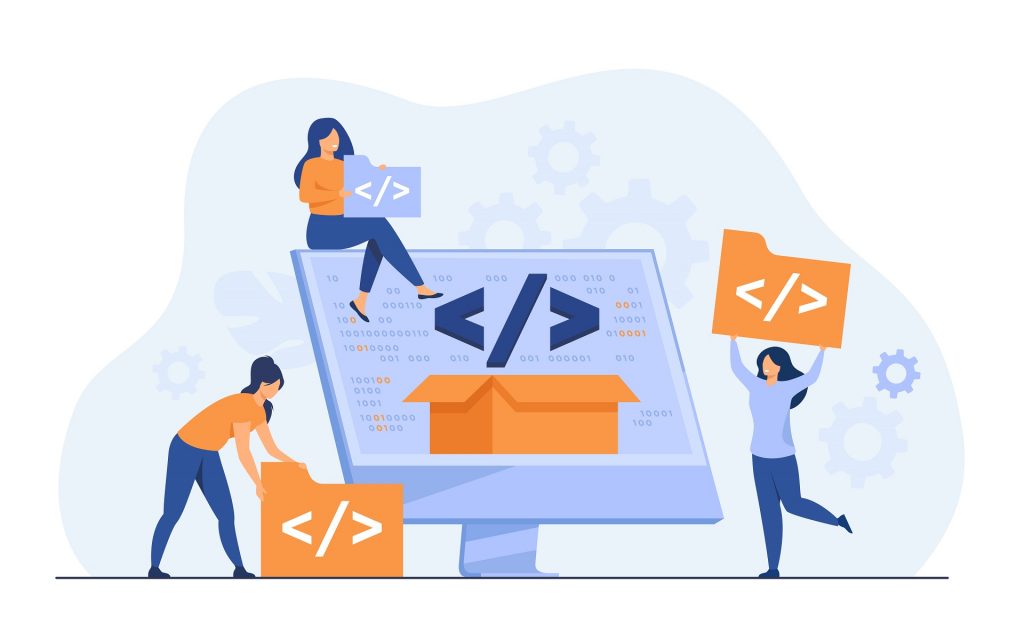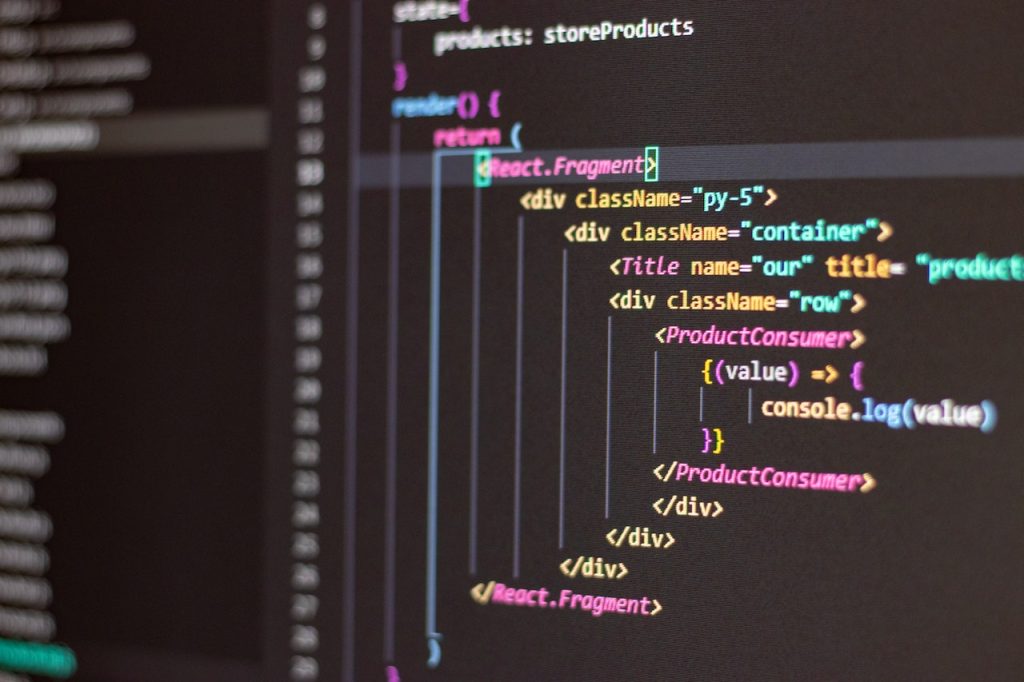Web development is normally divided into two frameworks, Front-end frameworks, and backend frameworks. The front-end framework interacts with the users and the backend is responsible for inner working. Though a front-end may or may not work without a backend but is very important to have a proper connection between the backend and the front-end for a fully functional web application. Backend developers have more focused on databases, servers, and how these both ends are working together. Backend developers use this framework as server-side programming language libraries to build a backend structure of a website and it involves data-management web server handling and database manipulation. They provide ready-made components for the development of dynamic web applications. Many backend frameworks are useful today. Here is the list of some top backend frameworks.
Read about Best Front-end Frameworks of 2023 for Web Development
Laravel framework:
On the top, Laravel is the best choice of open-source MVC (Model View Controller) framework in PHP programming language for web application development. It is developed by Taylor Otwell in 2011. This framework is best for beginners because it has a user-friendly interface, brilliant API support, and an extensive library. Laravel developers can use this framework for generating complex layouts and even sports widgets with functional JS and CSS code. It has an easy implementation of authentication and authorization logic. Laravel provides some great features such as e-commerce performance, abundant authentication, and effective testing that make Laravel better than other frameworks.
Read Why Laravel Framework is Better than others?
Django framework:
Django is a very secure and most popular python framework used in web development. Focused on rapid development, and pragmatic design, it takes care of much of the hassle of Web development which helps in writing your app without needing to reinvent the wheel. Django is user-friendly like Laravel and easy to learn. It is an open-source back-end framework. Because it is one of the security frameworks, it helps developers to avoid many common security mistakes. Being a python framework, Django is a full-stack framework that provides a lot of functionality out-of-box like REST API supports. It functions with XML, HTML, and JSON format projects.
Flask framework:
Flask is another python framework that is lightweight and extensible for back-end web development. It helps the developers to keep the web applications straightforward. Flask is a micro framework because it does not require particular tools and libraries. That’s why it is called a “do-it-yourself” framework with no database abstractions and is easy to learn. It is a fast debugger and built-in web development server and runs on the web server. Being a python framework it is also very friendly-user like Django and Laravel. But as compared with Django it is easy to learn. Pinterest, Netflix, Airbnb, and LinkedIn apps are using the flask framework for web development.
Express.js framework:
It is one of the trending frameworks and the most popular programming languages in the world. It is used to develop highly flexible applications. Express.js is open-source software under the MIT license web application framework for Node.js. it is called a de facto standard server framework designed for building web applications and APIs. Express.js can be the best choice for programmers who provide full-stack development from front to back-end. The pioneer developer TJ Hilowaychuk called it a Sinatra-inspired server. It supports a URL routing system. Express.js is best for creating REST APIs for mobile and web applications using Node.js. companies like Uber, Myspace, Myntra, IBM, and Accenture are using the Express.js framework.
Ruby on Rails framework:
One of the oldest and most popular backend frameworks written with Ruby programming language. It is a server-side framework based on MVC architecture. Ruby on rails is a beginner-friendly back-end framework that is easy to learn and it is mostly for e-commerce web services. It combines JavaScript, HTML, and CSS for web app development. It uses ready-made modules and plugins for rapid development. A web developer only uses codes in Ruby syntax instead of SQL codes to develop queries. It uses RoR and emphasizes Convention-over-Configuration (COC) and Don’t Repeat Yourself (DRY) principles.
Spring framework:
Spring framework is one of the best Java frameworks that use in back-end development. It is a lightweight and open-source framework used to create production-grand and stand-alone applications. Spring framework controls third-party libraries to help the developers to get started with minimum hassle. It manages different functions like security, caching, configuration management, and monitoring tasks. It provides powerful batch processing that helps to manage REST endpoints. Spring framework helps in avoiding complex XML configuration.
Nest.Js framework:
It is used to help build Note.js server-side applications. It is built using Typescript which helps developers to build a highly testable and scalable application. Nest.js is built on top of Express.js, and it offers multiple functionalities and APIs boxes. It depends heavily on angular architecture and offers a good structure and CLI tools for beginners. It provides modules with controller service to get started. Nest.js is entirely in Typescript, web developers can easily use the Nest.js framework. The difficult part of this framework is learning APIs and how to pass a request from the front-end to the back-end framework.
Meteor.js framework:
It is a JavaScript web application framework. You can launch an MVP web-developed product only in three to four weeks using the Meteor.js framework. Development becomes easier and more possible with the help of this framework. It offers the best synchronization opportunity in real-time. It has larger growing community support because it is super easy to learn. Meteor.js requires less code, less time spent on development, and higher quality. It gives you full freedom regarding the project structure with no obligatory rules.
Strapi framework:
Strapi is an open-source headless CMS (content management system) framework for web development. It is used to develop websites. Mobile applications, e-commerce sites, and APIs. It helps you to create APIs without knowing databases. It is a developer-friendly free-to-use service. You can have your work done in minutes. Strapi comes with an ORM (Object-Relational Mapping), with it you can build simple or complex content types without using any codes. Further, it prevents the developers from developing any code that is not being used.
Play framework:
It is one of the powerful frameworks written in Java and Scala, based on MVC architecture. It offers various features like hot code reloading, focusing on upgrading developer profitability, and displaying programming blunders. It is a RESTful and non-blocking back-end framework. It is a web-friendly framework that uses the Akka toolkit. The play framework is used by LinkedIn, Glovo, Coursera, and many more. It has extensive NoSQL and big data support.
Symphony framework:
It is an open-source PHP framework for web developers for developing full-featured web applications. It runs as an independent library and PHP unit. Ruby on Rails, Django, and spring frameworks heavily influenced the Symphony framework. Many open-source projects like Drupal, phpBB, and much more use its components. It is still a widely used application framework among web developers because of its lightweight. It has the two most technological benefits, bundles, and components. With symphony, you can make your web application user-oriented.
Koa.js framework:
It is a flexible Node.js web application back-end framework for web developers. It provides a set of features for web and mobile applications. It is an open-source framework developed by express.js. It is used for developing server processes faster and more exciting. It has a built-in catchall for errors that prevent a website to crash. Many companies like Paralect, and Bulb use this framework for their websites.
Iris framework:
A well-designed cross-platform web framework built on high-performance web applications and APIs. It is best for developing modern web applications with minimal effort. This framework can be used for gRPC services and REST APIs. It built protective and stable APIs for the users. It runs on Netlify and AWS. It is one of the best frameworks because it programs faster than any other framework.
Node.js framework:
It is a server-side open-source framework that helps you to build scalable network applications. It uses JavaScript language for coding which can be run in the node.js framework. Node.js have a collection of libraries of different JavaScript modules that would help in the development of web applications. One of the benefits of using node.js is the use of the same language for both front-end and back-end frameworks. It provides a definable structure for the codebase. This framework is best for organizing, previewing, and managing clusters.
CodeIgniter framework:
It is an open-source framework used to create dynamic web pages and websites in PHP language. This framework is considered as best for many industrialists and experts. It uses the popular MVCs (Model View Controller framework) and the development patterns. This framework is common for its vibrant speed and rapid responsiveness in comparison to other PHP frameworks. This framework can generate cleaner URLs. It is best for developing websites flawlessly and delivering exceptional functionality and design. This PHP framework is a freely usable set-up that exists in the form of folders.
Conclusion:
So, the above-mentioned frameworks are the back-end frameworks for web developers that help in reducing the codes for users. And choosing the right back-end framework is very important for any company for their web application development.




